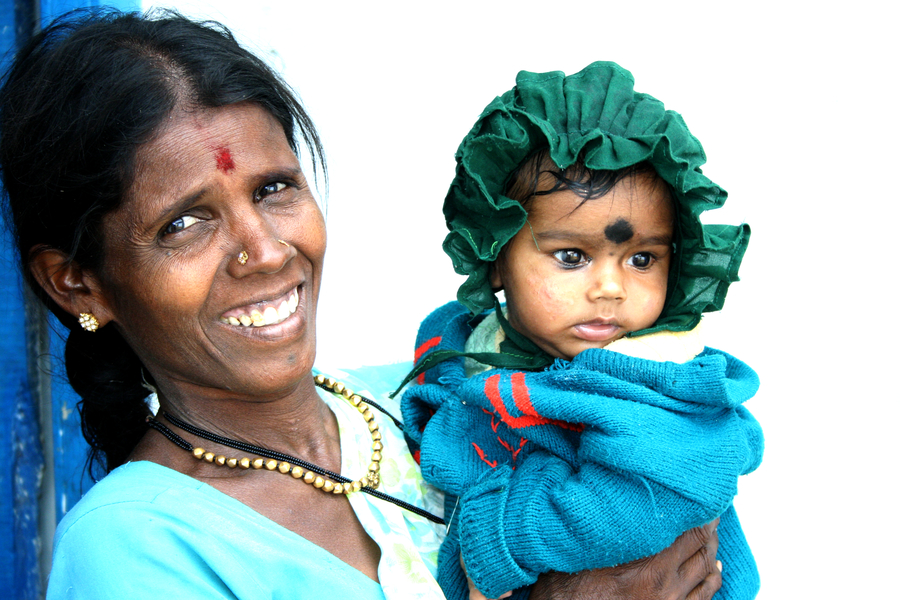Deep diving to build collaborations
|

Matching the new India country program leader's steps is not for the faint-hearted. Deep diving into PATH's global depth and breadth of work - he knows he is in the right place at the right time. He attributes his move from the private sector to the development sector to a chance conversation on how things in India were not working and how children were dying in India often for lack of the right attention or immediate and critical medical help. Around this discussion, he was asked, "So what are you doing about it?"
That was the turning point for Neeraj, who, as a parent to two young boys, decided that he was no longer going to sit on the fence on these important issues. "Imagine if something happened to my boys- what that would do to me!" Keen to make a difference, he jumped in to look for avenues to work towards changing things. Coming to PATH from WaterAid India, Neeraj has been on the forefront of catalysing the conversation around water and sanitation in India. DefeatDD is sure that he will continue to be an advocate for addressing diarrheal disease and caught up with him - over break - that the leader in a hurry allowed himself.

Tell us about your work as Chief Executive of WaterAid India.
Following the Prime Minister of India's call the Clean India Mission in 2014. WaterAid convened the India water, sanitation, and hygiene (WASH) Summit in February 2015. The first event of its kind, it brought together practitioners, policymakers¸ thought leaders, the private sector, government officials, and NGOs working to make a clean India a reality by 2019. More than 600 people attended the discussion on how to get things done.
WASH cuts across all sectors and impacts poverty, education, and health. Apart from building toilets, it was important to understand where the water would be sourced from and discuss issues around hygiene and behavior, all of which is critical if we need to have a long term impact in the WASH space. It was also important to work towards ensuring that the poor have the basic facilities that are available to us and that we take for granted.
While representing WaterAid India at numerous forums on WASH in India and globally the focus has been to promote the importance of WASH in improving child health. I have been part of dialogues with senior government officials, both at the central and state levels, at the World Water Week in Stockholm, and SACOSAN (South Asian Conference on Sanitation).
Over the past few month the series of dialogues have resulted in a very important milestone - the establishment of the India Sanitation Coalition. The Coalition, launched in June 2015, is leading the sanitation conversations in India by bringing together organizations and individuals to find sustainable solutions for sanitation.
You have been bold about the most whispered four letter word in your TEDx talk in December 2015.
The event used the TED conference format but was independently organized by a local community. This is designed to help communities, organizations, and individuals to spark conversation and connection through local TED-like experiences. I titled my talk “Shit Matters.” And I spoke about the fact that 145,000 children die every year because they are exposed to pathogens from an unhealthy environment.
With your experience in WASH and nutrition what are your immediate tasks at PATH?
PATH is seen as the leader in cutting edge innovations in the health sector. We have a diverse portfolio on maternal and newborn health and I am looking forward to trying to connect the dots and being able to take PATH's innovations forward to make survival a must for children and women in India. I am hopeful that innovations and technologies will help India achieve its Sustainable Development Goals. Without India catching up, most of the SDG's will remain a pipe dream.
I believe that organisations are built by people. Each individual has a critical role to play within the organization. How, for example, do we make sure that each individual is able to deliver their creative best by getting out of their assigned boxes? Only when people put in their cerebral, critical thinking will they deliver collectively as one team. I like challenges, and I am curious and creative about finding solutions for the developmental crisis in India.
In my previous avatar in the private sector I understood the importance of collaborations. I feel that collaborations will be critical for India to achieve her SDGs. I will also be keen to follow PATH's impact on the ground and see that it is scaled up.
Tell us more about your desire to travel
Having lived across three continents and five countries over my lifetime, the nomadic lifestyle has trained me to explore. I invest in travelling because I like to meet people, explore local cultures and cuisine. I like reading of writing about global developmental views, issues, people, journeys, and autobiographies.
Photo credit: PATH/Satvir Malhotra.














